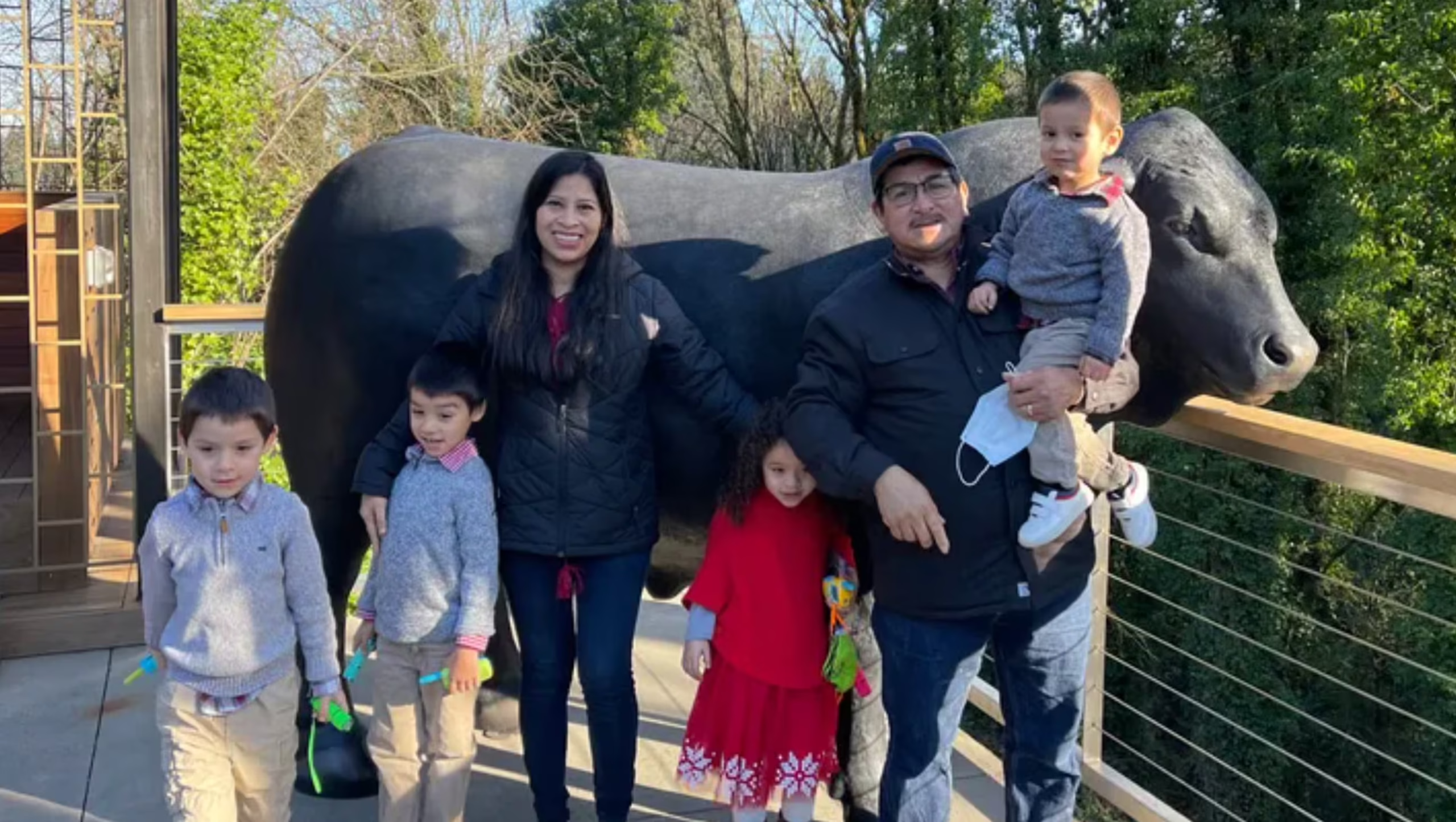A Sudden Text That Changed Everything
For Mimi Lettunich and her partner, Kris Wigger, life shifted in an instant with a brief, desperate text message:
“Mimi, I’ve been detained. Help me.”
The Portland couple, who were nearing an empty-nest stage with their own children grown, suddenly found themselves responsible for four young siblings after their parents were taken into ICE custody this summer.
Also Read
“We were on the verge of empty nesting,” Wigger recalled. “And now our days are filled with breakfast, lunch, dinner, and lots of dishes — and lots of questions.”
Four Children, Four Different Struggles
The children — 7-year-old Jeffrey and 9-year-old triplets Abby, Carlos, and David — were all born in the United States. With their parents held at the Tacoma detention facility, their daily lives have been upended.
Schoolwork, meals, and carefully scheduled phone calls now dominate their routines. David, described as the “organizer,” takes it upon himself to make sure each sibling has time to speak with their parents when they call.
“David is sweet and he’s the organizer,” Lettunich said. “He schedules the calls on the iPad and makes sure everyone gets their turn.”
Visits Through Glass
Those calls and visits, however, are far from normal family moments. At the detention facility, contact is limited to conversations through glass walls.
“Seeing them have to see their parents through glass and knowing how loving they are, and they can’t touch, is crushing,” Wigger said, her voice breaking.
The children echoed the heartbreak.
-
“Sometimes we go visit them and we go to these glass booths where we just talk and see each other but you can’t touch,” Abby said.
-
“You just talk, but you can’t really hear it really well,” Jeffrey added.
The lack of physical connection has been especially painful. Abby recalled a cherished memory: “When I was a baby, my mom used to do this thing with me, like noses touching. That was my favorite thing. It just makes me want to cry right now.”
Loss of Innocence
The siblings’ emotions reveal how deeply the separation has affected them.
-
“I really miss seeing them every day,” Carlos said.
-
“I miss like everything about them,” David added.
Wigger noted how much the children have had to grow up in just a few months. “They lost summer, they lost a bit of their innocence, a bit of their youth,” she said.
Carlos voiced the precariousness of their situation, acknowledging, “If Mimi didn’t know about this, we would already be in Honduras.”
Holding Onto Hope
Despite the hardship, the family is trying to hold on to hope. The children’s mother, Jackie Merlos, has a pending U-visa, which provides a potential path to legal status for victims of certain crimes who cooperate with law enforcement.
“She always reminds us, ‘It’s not forever,’” Lettunich said. “We’re all adjusting, and it won’t be forever.”
For now, the siblings find comfort in their guardians, in each other, and in the belief that their family will one day be reunited without barriers of glass or distance.
A Broader Picture
The story of these four Portland children underscores the wider human toll of immigration enforcement. While national debates often focus on policies and politics, families like theirs live the consequences daily — navigating uncertainty, clinging to fragile routines, and fighting to keep hope alive.
For Jeffrey, Abby, Carlos, and David, what they want is simple: their parents back home, where bedtime doesn’t mean a phone call and love isn’t limited by glass walls.












